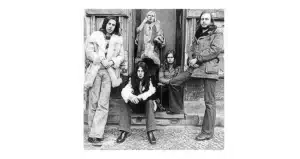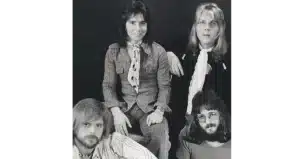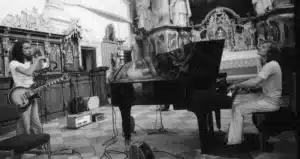Rufus Zuphall: The Underground Innovators of Krautrock
Introduction
The German progressive rock scene of the late 1960s and early 1970s produced a host of bands who pushed the boundaries of rock music into new experimental territories. Among them, Rufus Zuphall stand out as one of the most intriguing yet underrated groups. Blending elements of progressive rock, blues, folk, and jazz with strong improvisational tendencies, Rufus Zuphall were part of the Krautrock movement that also gave the world acts like Can, Amon Düül II, and Guru Guru. While they only released two studio albums during their original run, their legacy remains an essential piece of the Krautrock puzzle.
Origins and Formation
Rufus Zuphall formed in Aachen, Germany, in 1969. The founding members were:
- Günter Krause – guitar and vocals
- Klaus Gülden – flute and vocals
- Helmut Lieblang – bass
- Udo Dahmen – drums
Unlike some of their more avant-garde contemporaries, Rufus Zuphall were rooted in rock and blues, but their willingness to incorporate flute-driven melodies and long improvisations set them apart. The flute, in particular, became a defining element of their sound, leading many critics to draw parallels with Jethro Tull. Yet Rufus Zuphall’s approach was darker, more experimental, and infused with the distinctly German spirit of Krautrock.
Weiß der Teufel (1970)
The band’s debut album, Weiß der Teufel (“White Devil”), was recorded in 1970 and released on the Little Wing of Refugees label. It immediately showcased their adventurousness.
The record combined heavy guitar riffs with blues structures, lengthy instrumental passages, and strong flute motifs. Standout tracks include:
- Weiß der Teufel, Part 1 & 2 – An extended suite featuring improvisation and progressive shifts.
- Knight of 3rd Degree – Highlighting their blues-rock roots.
The album’s raw, almost live-sounding production added to its underground appeal. Though it lacked the polish of bigger-name acts, its adventurous spirit earned it cult status among collectors and fans of early German prog.
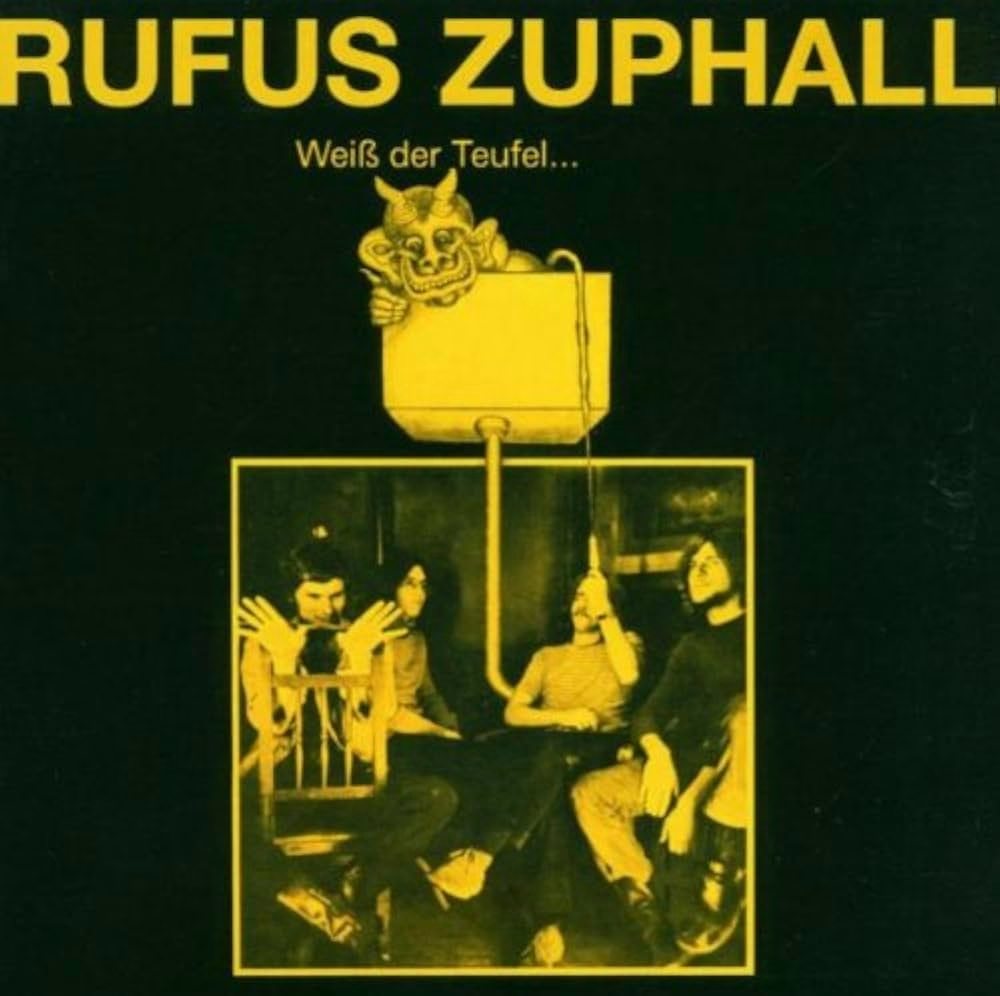
Phallobst (1971)
Their second album, Phallobst (1971), saw Rufus Zuphall expand their ambitions. The title itself was provocative—“Phallobst” roughly translates to “phallic fruit”—reflecting the countercultural irreverence of the time.
Musically, the album blended complex arrangements with extended jams, touching on blues, progressive rock, and folk. Notable pieces include:
- Opus 1 – A 20-minute epic that encapsulates the band’s improvisational energy.
- Prickel Pit – A shorter, driving track with bluesy undertones.
- Knight of 3rd Degree (revisited) – A continuation of their earlier themes.
With Phallobst, Rufus Zuphall positioned themselves as serious contenders in the European underground. The album, however, suffered from limited distribution, preventing it from reaching a wider audience at the time.
Breakup and Silence
Despite their talent, Rufus Zuphall faced challenges common to many Krautrock bands: limited commercial support, financial difficulties, and the struggle to compete with Anglo-American acts dominating the market. After Phallobst, the group disbanded in 1972, cutting short their promising career.
For decades, their albums remained obscure, known only to dedicated Krautrock enthusiasts and collectors who traded rare vinyl pressings.
Rediscovery and Revival
In the 1990s, interest in Krautrock surged internationally, as younger audiences and collectors began to appreciate the adventurous spirit of the German underground. Rufus Zuphall’s albums were reissued on CD and vinyl, introducing their music to new listeners.
In 1999, the band reunited for a live performance in Aachen, leading to the release of Outside the Gates of Eden (2000), a live album that captured both their old classics and new material. Though older, the musicians still displayed the fire and improvisational daring that defined their early years.
Later Releases
Since their reunion, Rufus Zuphall have occasionally performed and recorded, maintaining a small but devoted following. Their post-reunion work includes live recordings and archival material, reinforcing their cult reputation. While they never achieved mainstream fame, their influence within progressive and Krautrock circles continues to grow.
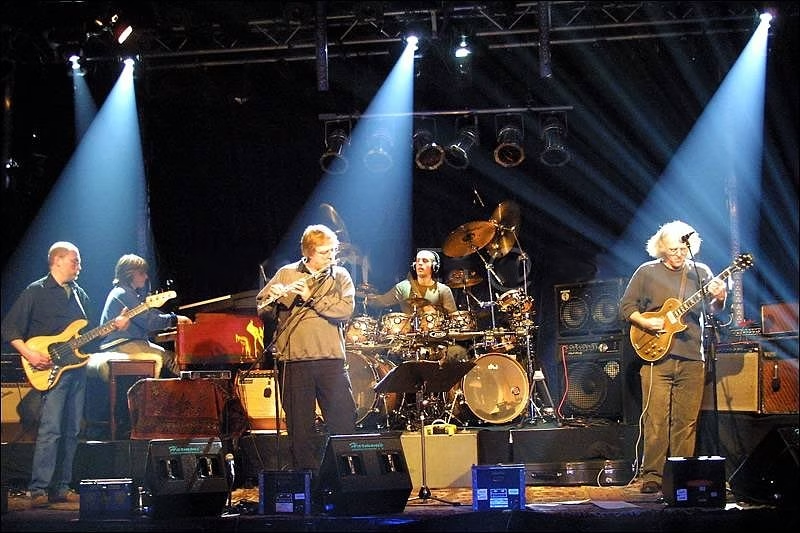
Musical Style
Rufus Zuphall’s music is characterized by:
- Flute as Lead Instrument: Klaus Gülden’s flute gave their sound a distinctive identity, setting them apart from guitar-driven contemporaries.
- Blues-Progressive Fusion: Unlike Can or Faust, Rufus Zuphall were rooted in blues rock, but pushed it into progressive directions.
- Improvisation: Their lengthy suites often felt like controlled jams, emphasizing spontaneity.
- Dark Atmosphere: Even in their folk-inspired passages, there was a brooding quality.
This mixture made them one of the more unique entries in the Krautrock movement, straddling the line between accessibility and experimentation.
Influence and Legacy
While Rufus Zuphall never reached the recognition of bands like Kraftwerk, Can, or Amon Düül II, their music remains highly respected among Krautrock enthusiasts. Their willingness to combine folk, blues, and progressive improvisation with a dark, Germanic atmosphere has influenced later generations of underground and prog musicians.
Collectors prize their original vinyl releases, and their cult following has only grown thanks to reissues and the internet. They are often cited as an example of how diverse and experimental the Krautrock scene truly was, going far beyond the better-known electronic pioneers.
Conclusion
Rufus Zuphall may not have achieved fame during their brief initial run, but their legacy as one of Krautrock’s hidden gems is undeniable. With just two original albums, Weiß der Teufel and Phallobst, they created a sound that blended bluesy roots with progressive daring and a uniquely German experimental spirit.
Their revival in the 1990s and continued cult popularity prove that music ahead of its time can eventually find its audience. For listeners willing to explore beyond the mainstream history of progressive rock, Rufus Zuphall offer a rewarding journey into the adventurous heart of early 1970s Germany.


